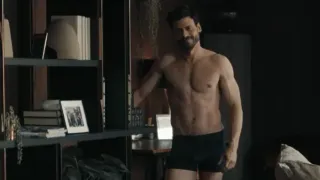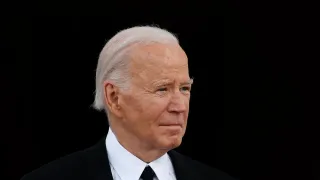February 9, 2023
2023 Rewind: Nasty Pig Co-founder David Lauterstein on Getting Positive Queer Energy Out Into the World
Steve Duffy READ TIME: 7 MIN.
This piece is part of EDGE's 2023 Rewind series. We're reaching into our archives and sharing some of our favorite stories from the past year.
The fashion brand Nasty Pig will be celebrating its 30th anniversary next year, as will its two co-founders, Frederick Kearney and David Lauterstein, who met that year. From a $50 investment it has grown into one of the most recognizable LGBTQ+ fashion brands whose easily recognizable logo can be seen on their underwear, jockstraps, jeans, shorts, T-shirts, and swimwear.
But how did Nasty Pig come about? EDGE spoke with co-founder Lauterstein about the genesis of the company, how Nasty Pig made its way to the White House, and the secret to his personal and professional success.
EDGE: Can you tell me about the history of Nasty Pig?
David Lauterstein: I started Nasty Pig in 1994 with my then boyfriend and now husband of 29 years, Fred. We started it in response to the AIDS crisis and we wanted to be a voice for sexual positivity. At the time, our community had adopted the stigma of AIDS, and it was unfairly placed upon us. The prevailing wisdom back then amongst our own community was to just blend in. To be heteronormative. I don't need to be tolerated or accepted. I want to be respected for my uniqueness. So, we started Nasty Pig as a way to put that energy out into the world.
We were wildly unpopular, and the gay community hated us. No stores would carry us and no magazines would print our ads. We were too gay, even for a lot of the gay press at the time. I do too gay really well, so I stuck with it. We built our following one person at a time.
EDGE: You were hated even within the gay community?
David Lauterstein: On more than one occasion, we had notes posted to our door saying, "You're spreading AIDS." Back then, the idea of being sexually forward was not welcome. Because of the HIV/ADIS epidemic, this was the type of energy that we were faced with.






